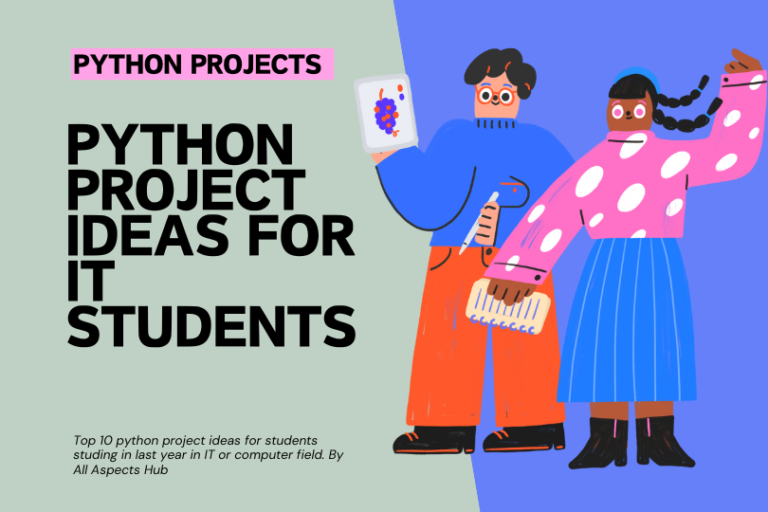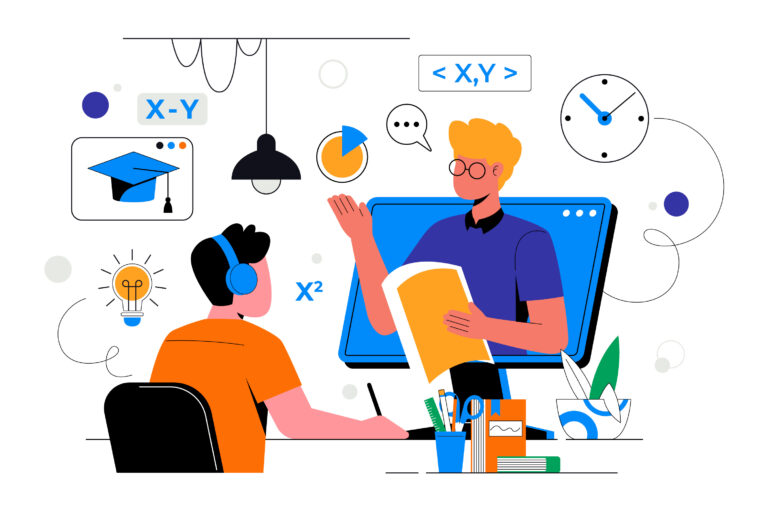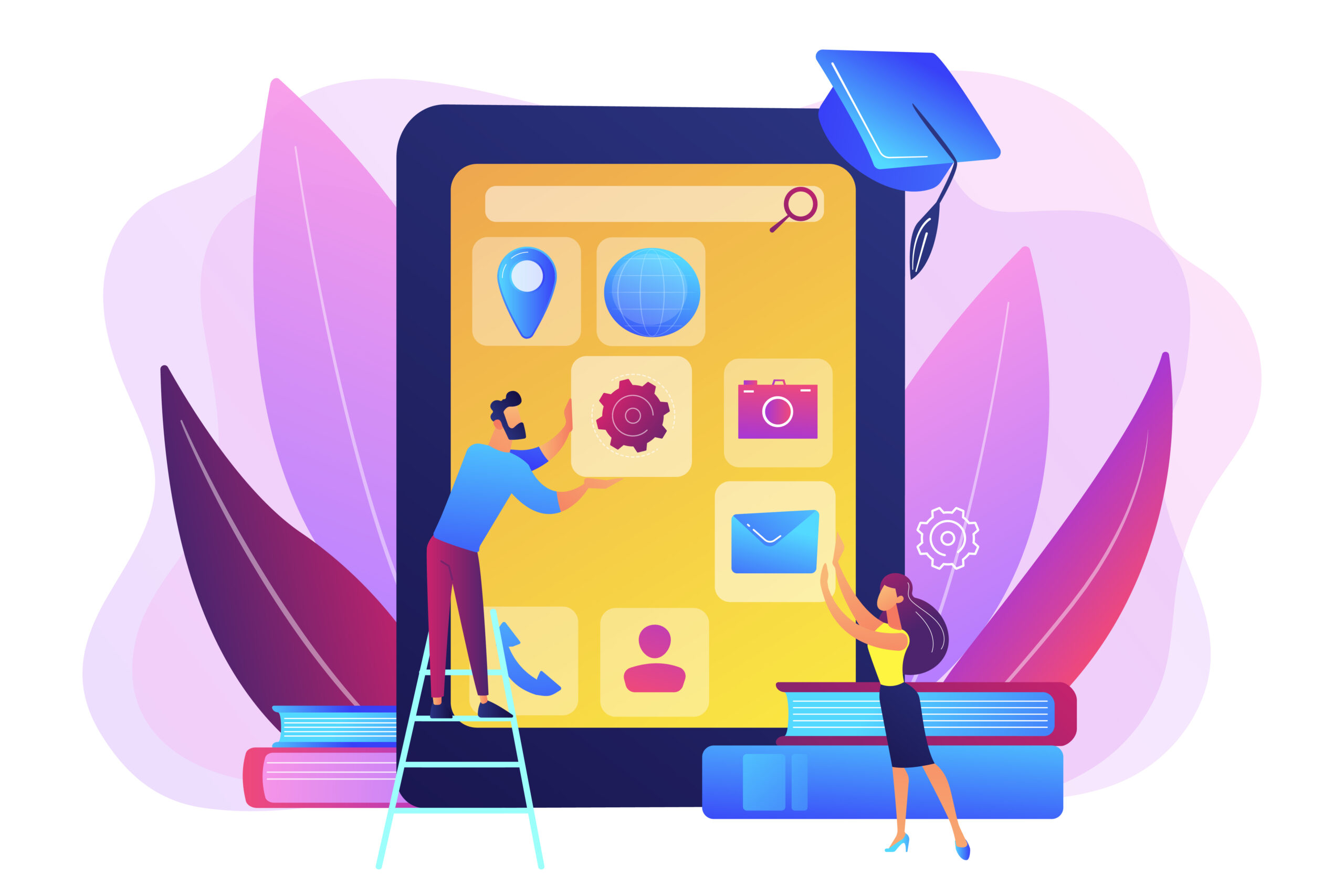
E- learning. Education process. Training application. Mobile app development courses, mobile apps online courses, become a mobile developer concept. Bright vibrant violet vector isolated illustration
In the age of smartphones and digital innovation, education has undergone a significant transformation. Students no longer have to rely solely on traditional classroom settings for learning. With the advent of educational apps, learning has become more accessible, interactive, and personalized. These apps cater to various subjects, learning styles, and age groups, providing a rich and dynamic educational experience. In this blog, we will explore the top 5 educational apps that are revolutionizing the way students learn, offering them a chance to enhance their knowledge beyond the confines of the classroom.
1. Duolingo: Mastering Languages in a Fun and Interactive Way
Learning a new language can be a daunting task, but with Duolingo, it becomes an enjoyable journey. Duolingo is a language learning app that offers a gamified approach to mastering different languages. Whether you’re a beginner or looking to refine your language skills, Duolingo provides lessons in bite-sized portions, making it easy to fit into your daily schedule.
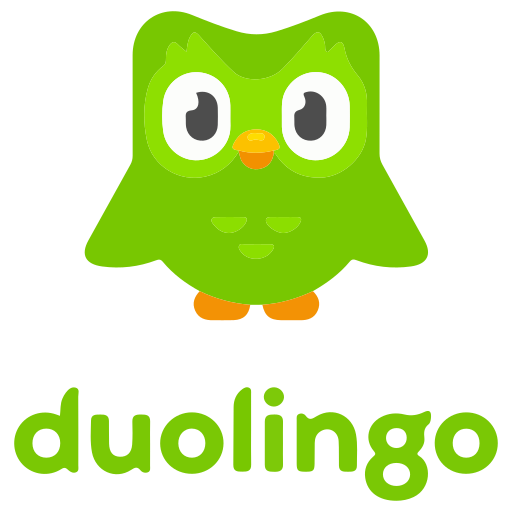
The app covers a wide range of languages, from the commonly spoken ones like Spanish and French to less mainstream options like Esperanto and High Valyrian. Duolingo incorporates speaking, listening, and writing exercises, ensuring a well-rounded language learning experience. The app’s interactive nature keeps students engaged and motivated, making language acquisition an exciting adventure.
2. Khan Academy: Personalized Learning for Every Student
Khan Academy has been a game-changer in the field of online education. With a mission to provide a free, world-class education for anyone, anywhere, Khan Academy offers a vast array of lessons and practice exercises across subjects such as mathematics, science, economics, and more. What sets Khan Academy apart is its personalized learning approach.

The app adapts to each student’s pace and style of learning, offering targeted practice problems and instructional videos to address individual needs. Whether you’re struggling with algebra or aiming to excel in advanced calculus, Khan Academy provides a structured and comprehensive learning path. With its easy-to-navigate interface and detailed progress tracking, students can take charge of their education and learn at their own pace.
3. Quizlet: Transforming Study Sessions with Flashcards and Games
Studying doesn’t have to be a tedious task, thanks to Quizlet. This versatile app allows students to create their own study materials or choose from a vast library of user-generated content. The standout feature of Quizlet is its focus on active recall through flashcards and engaging games.

Users can create flashcards with questions on one side and answers on the other, facilitating effective self-testing. Additionally, Quizlet offers games like Quizlet Live, which turns studying into a collaborative and competitive experience. Whether you’re preparing for a biology exam or brushing up on historical dates, Quizlet injects an element of fun into the learning process while reinforcing key concepts.
4. Photomath: Making Math Less Daunting Through Smart Solutions
For many students, math can be a challenging subject that requires extra support outside the classroom. Photomath is an app designed to alleviate math anxiety by providing step-by-step solutions to mathematical problems. The app uses the smartphone camera to scan and solve handwritten or printed math problems, instantly providing explanations and solutions.
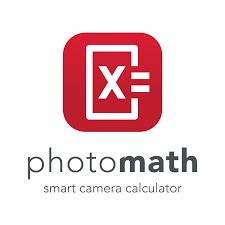
Photomath covers a wide range of math topics, from basic arithmetic to advanced calculus. It not only gives the correct answer but also breaks down the problem-solving process, helping students understand the underlying concepts. While Photomath shouldn’t replace traditional learning methods, it serves as an excellent supplementary tool for students seeking extra guidance and practice in mathematics.
5. Google Classroom: Streamlining Classroom Communication and Collaboration
As technology continues to shape the education landscape, Google Classroom emerges as a powerful tool for both educators and students. This app facilitates seamless communication and collaboration within a virtual classroom environment. Google Classroom allows teachers to create and distribute assignments, provide feedback, and engage with students in real-time.
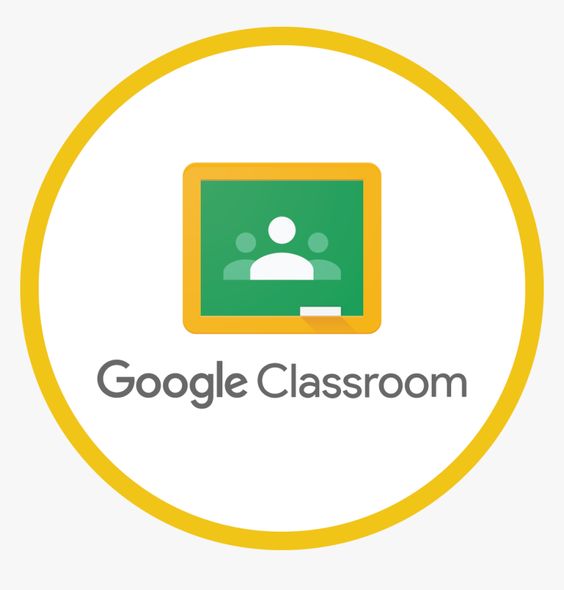
Students can access assignments, submit their work, and participate in class discussions, all within the Google Classroom platform. The app integrates with other Google Workspace tools, such as Google Docs and Google Drive, making it easy for students to collaborate on projects. Google Classroom promotes organization, communication, and efficiency, fostering a digital learning environment that mirrors the collaborative nature of the modern workplace.
Conclusion: Embracing Educational Apps for a Brighter Future
In conclusion, educational apps have become indispensable tools for students looking to enhance their learning experience beyond the traditional classroom setting. From language learning with Duolingo to personalized education with Khan Academy, these apps cater to diverse learning needs and preferences. Quizlet and Photomath bring an element of interactivity to studying, making it more engaging and effective. Finally, Google Classroom streamlines communication and collaboration, preparing students for a future that relies heavily on digital literacy.
As technology continues to advance, educational apps will likely play an even more significant role in shaping the future of learning. By incorporating these top 5 educational apps into their study routines, students can take charge of their education, explore new subjects, and develop a lifelong love for learning. The integration of technology and education is a powerful combination that opens doors to endless possibilities, ensuring that students are well-prepared for the challenges and opportunities that lie ahead.
